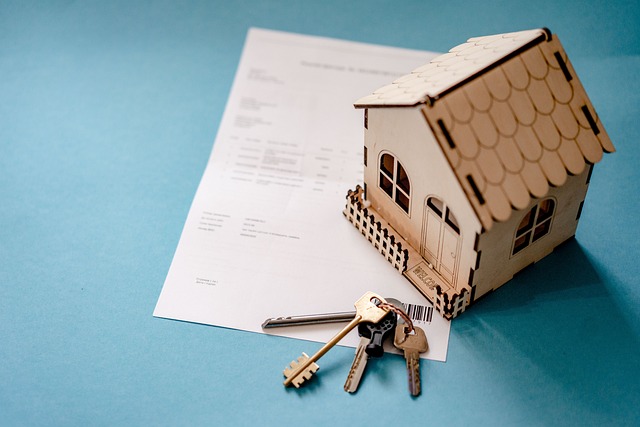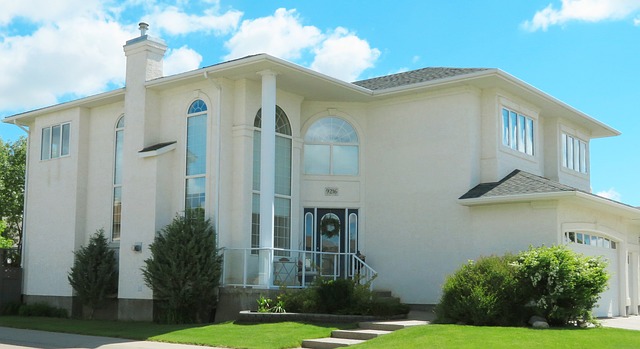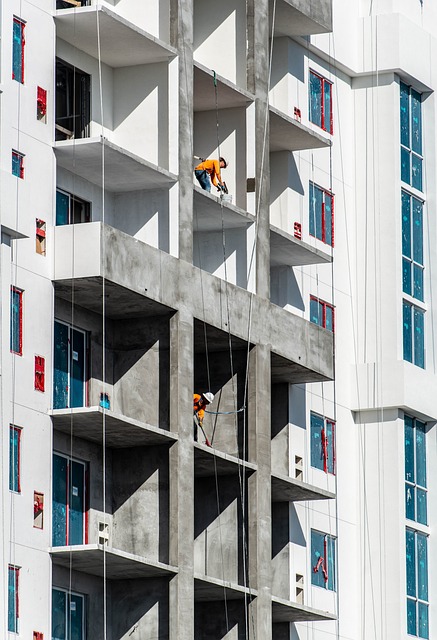Executive Condominiums (ECs) in Singapore represent a housing middle-ground between public and private residences, offering a blend of affordability and luxury living. The price of ECs is influenced by factors such as location, age, size, and amenities, with newer projects typically commanding higher prices due to their modern facilities and proximity to the full 99-year lease tenure. Market dynamics, including economic conditions and the availability of units, play a significant role in dictating EC pricing trends. For those interested in Executive Condominium Price movements, it's crucial to consider the maturity of the project, as this affects value. Additionally, demographic shifts and governmental regulations have an impact on these prices over time. Historical data indicates that EC prices tend to reflect broader market trends, with initial launch prices generally higher than those for new flat buyers. Investors and potential residents should analyze past price patterns, current economic indicators, and policy changes to navigate the property market effectively and make informed decisions about Executive Condominium Prices.
In the dynamic Singapore real estate landscape, understanding the trajectory of Executive Condominium (EC) prices is crucial for investors, buyers, and market observers alike. This article delves into the multifaceted aspects influencing EC prices, from historical trends to future projections. We’ll analyze the impact of government policies, economic indicators, and market sentiment on pricing, explore location-based dynamics, and compare ECs with private condominiums. Additionally, we’ll examine how new launches, en bloc sales, environmental factors, and financing options shape the EC market. With a focus on recent sales transactions, price fluctuations, demographic trends, and the influence of interest rates, this comprehensive analysis aims to provide valuable insights for stakeholders considering an investment in these versatile homes. By leveraging expert opinions, real-time market intelligence, and advanced analytics tools, we’ll offer a clear picture of the current state and potential future developments of EC prices in Singapore.
Understanding Executive Condominiums (ECs) in Singapore

Executive Condominiums (ECs) in Singapore represent a unique segment within the property market, offering a middle ground between public and private housing. These hybrid homes provide the luxuries of a condo with the affordability of a Housing & Development Board (HDB) flat. The pricing of ECs is influenced by several factors, including their location, age, size, and the amenities they offer. Prospective buyers interested in Executive Condominium Price analysis should consider the maturity of the project, as younger ECs generally command higher prices due to their newer facilities, better finishes, and lease tenure that is closer to the maximum 99 years. The pricing trajectory of ECs also reflects market demand and the economic climate; during periods of economic growth or when there is a scarcity of available units, prices tend to rise. As these properties are designed for upgraders from HDB flats and young families, the Executive Condominium Price must be assessed within the context of their financial capabilities and long-term housing plans. Understanding the nuances of EC pricing is crucial for both investors and potential residents to make informed decisions in Singapore’s dynamic property landscape.
Historical Trends of EC Prices in Singapore

Over the years, the prices of Executive Condominiums (ECs) in Singapore have exhibited a dynamic trend that reflects the changing landscape of the property market. Historical data indicates that EC prices have generally followed the broader trends observed in both the private and public housing markets, with fluctuations influenced by various factors including economic conditions, population growth, and government policies. For instance, during periods of economic prosperity, there has been a noticeable uptick in EC prices, mirroring the demand for larger living spaces that offer the benefits of both private and public housing. Conversely, during economic downturns or when cooling measures were introduced, such as the implementation of Total Debt Servicing Ratio (TDSR) framework, price growth for ECs has been tempered.
Analyzing long-term trends, one observes that EC prices have seen cyclical peaks and troughs in sync with the property market’s rhythms. The initial launch prices of ECs have traditionally been set at a premium compared to new flat buyers’ grants, reflecting their hybrid nature as being more luxurious than public housing but more affordably priced than pure private condominiums. However, over time, as these developments mature and the market evolves, the price differential has narrowed in some instances. Investors and homebuyers interested in the Executive Condominium Price trajectory should consider these historical trends alongside current economic indicators and government policies to make informed decisions.
Executive Condominium (EC) prices in Singapore have demonstrated a dynamic trajectory, influenced by a multitude of factors including market demand, economic conditions, and government policies. The historical trend analysis reveals a pattern of growth and fluctuation, with EC prices responding to both internal and external stimuli. As the market continues to evolve, potential buyers and investors should keep abreast of these trends to make informed decisions. Prospective residents considering an EC as their home will find this analysis particularly valuable, as it offers insights into the price movements over time. In conclusion, understanding the nuances of EC pricing is crucial for anyone looking to invest in or reside within these unique housing types in Singapore’s property landscape.



